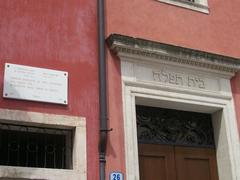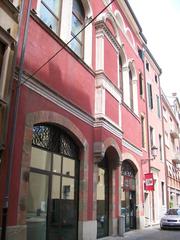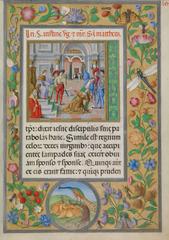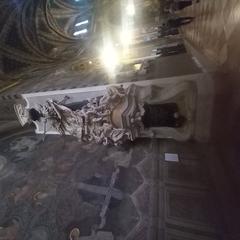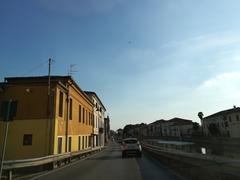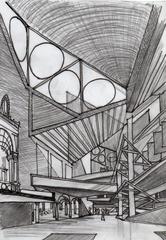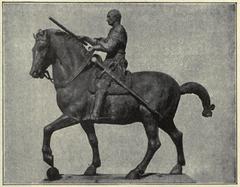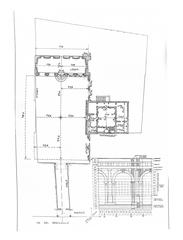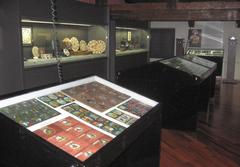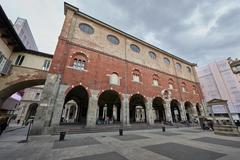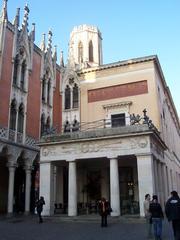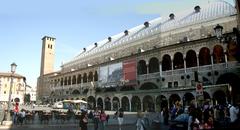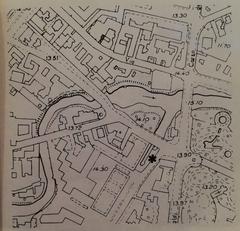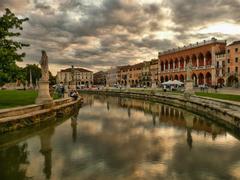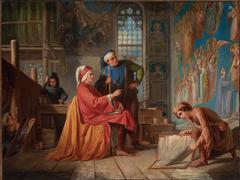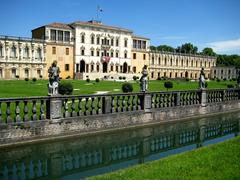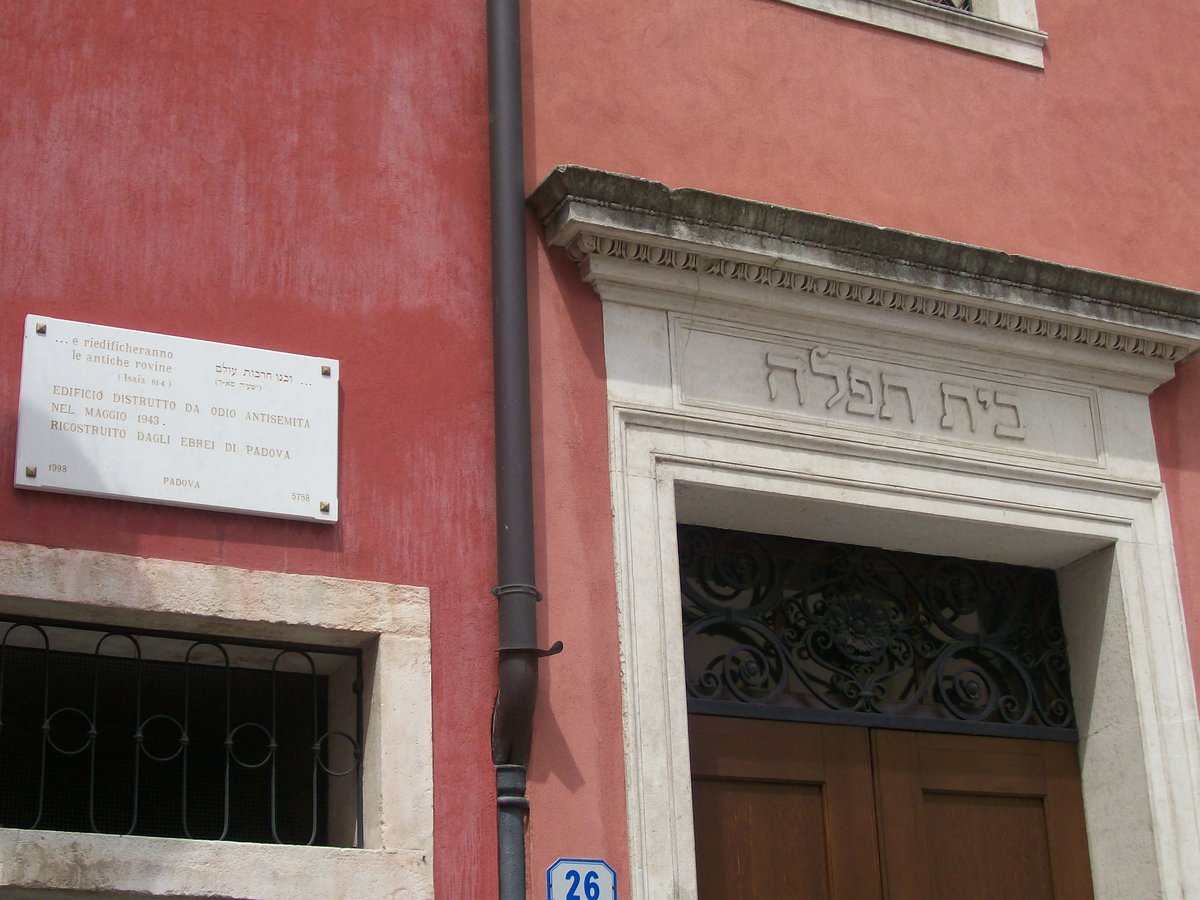
Museo Della Padova Ebraica: Visiting Hours, Tickets, and Complete Travel Guide
Date: 14/06/2025
Introduction
The Museo Della Padova Ebraica, located in the heart of Padua’s historic Jewish Ghetto, serves as a vital institution preserving and presenting the centuries-old history of one of Italy’s most enduring Jewish communities. Housed in the restored Ashkenazi Synagogue—originally established in 1522 and tragically destroyed by arson during World War II—the museum is both a memorial and a living center for intercultural dialogue, education, and remembrance. Its exhibitions, collections, and educational programs offer a unique insight into Jewish faith, scholarship, and resilience in Padua.
This guide provides detailed information on the museum’s historical context, visiting hours, ticketing, accessibility, educational offerings, and practical travel tips to help you make the most of your visit.
For the latest updates and more details, consult the official museum website and local tourism resources (Museo della Padova Ebraica, Turismo Padova, Provincia di Padova).
Historical Significance
Padua’s Jewish community is one of Italy’s oldest, with roots dating back to the late 13th century. Under the protection of the Carraresi family, Jews flourished as merchants and scholars, drawn to the city’s renowned university (World Jewish Travel). The establishment of the Jewish Ghetto in 1603 confined the community but also fostered the development of rich religious and cultural life, with the construction of several synagogues, including the Ashkenazi (Scola Grande) and the Italian Rite Synagogue (Turismo Padova).
The Ashkenazi Synagogue, central to this legacy, was devastated in 1943. Its restoration in the late 20th century, spearheaded by the Jewish community and local authorities, symbolized the resilience of Padua’s Jews and set the stage for the museum’s founding in 2015 (Museo della Padova Ebraica).
Museum Collection & Highlights
The museum’s collection spans centuries of Jewish religious, social, and cultural life:
- Ritual and Ceremonial Objects: Including candlesticks, spice boxes, Pesach plates, Kiddush cups, Torah crowns, and prayer books.
- Historic Manuscripts and Artifacts: Notable pieces include a 16th-century Egyptian parokhet (Torah curtain), 18th-century Megillat Esther, and elaborately decorated ketubbot (marriage contracts).
- Multimedia Installations: “Generazione va, generazione viene,” a video project by Denis Brotto, brings to life the stories of ten influential figures from Padua’s Jewish past (World Jewish Travel).
- Archival Materials: The museum houses rare books and family documents, valuable for researchers and those interested in genealogy.
- Guided Synagogue Visits: The adjacent Italian Synagogue, still active today, features elegant 18th-century furnishings and is accessible during guided tours (Turismo Padova).
Educational and Cultural Initiatives
The museum is deeply engaged in educational outreach, offering:
- Guided Tours and Workshops: Available in several languages for individuals, families, schools, and groups.
- Cultural Programs: Including book presentations, lectures, and commemorative ceremonies with Holocaust survivors and historians.
- Community Engagement: Annual events such as the European Day of Jewish Culture and Holocaust Remembrance, as well as guided walks to Stolpersteine (memorial stones) and the ancient Jewish cemetery (Museo della Padova Ebraica).
- Multimedia Experiences: Interactive displays and video content ensure history is accessible and engaging for all ages.
Visiting Information
Address and Location
- Address: Via delle Piazze 26, 35122 Padova, Italy
- Located in the former Jewish Ghetto, steps from Piazza delle Erbe and close to other Padua historical landmarks (Museo della Padova Ebraica).
Getting There
- By Train: Padua is a major stop with frequent trains from Venice. From Padova station, take bus line 3 or 6 to ‘Piazza Garibaldi’ and walk to the museum (Evendo).
- By Car: Paid parking is available in the city center, but public transport is recommended due to limited spaces and ZTL (restricted traffic zones).
- On Foot: The museum is within easy walking distance from Padua’s main attractions.
Opening Hours
- Monday & Thursday: 10:00 – 17:00
- Sunday: 10:00 – 18:00
- Closed: Saturdays, Jewish holidays, January 1st, December 25th
- Last Entry: 45 minutes before closing (Museo della Padova Ebraica; Turismo Padova)
Tickets and Reservations
- General Admission: €7
- Reduced (students, seniors): €5
- Family Ticket (2 adults + children under 18): €15
- Children under 6: Free
- Guided Tour Supplement: €3 per adult in family tickets
- Booking: Recommended for guided tours and groups. Reserve online via the official website or call +39 049 661267 (Mon–Thu 9:00–17:00).
Guided Tours
- Sundays: Fixed times—10:30, 11:30, 12:30, 14:30, 15:30, 16:30
- Includes: Museum and synagogue visits
- Private Tours: Available by reservation on other days (except Saturdays and Jewish holidays)
Accessibility and Visitor Services
- Physical Accessibility: Some areas may be challenging due to the historic structure; contact the museum ahead for accommodations.
- Restrooms: Available on site.
- Cloakroom: Not available—travel light.
- Photography: Check with staff before photographing exhibits or inside the synagogue.
Visitor Tips
- Advance Booking: Strongly recommended for guided tours and during peak tourist seasons.
- Dress Code: Modest attire, especially for synagogue entry.
- Languages: Tours are mainly in Italian; English and others upon request.
- Visit Duration: Plan for 1.5–2 hours for the museum, synagogue, and optional Jewish cemetery tour.
- Respectful Conduct: The synagogue remains an active place of worship—please maintain decorum.
Nearby Attractions
- Jewish Heritage Sites: Italian Rite Synagogue, Ancient Jewish Cemetery (Via Wiel), Stolpersteine memorials (Museo della Padova Ebraica).
- Padua Landmarks: Piazza delle Erbe, Piazza dei Frutti, Palazzo della Ragione, University of Padua, Scrovegni Chapel
Frequently Asked Questions (FAQ)
Q: How do I buy tickets for the Museo Della Padova Ebraica?
A: Purchase tickets online via the museum’s website or at the entrance. Advance booking is recommended for guided tours and groups.
Q: Are guided tours available in English?
A: Yes, tours are offered in English and other languages upon request. Book ahead for language preference.
Q: Is the museum accessible to visitors with disabilities?
A: The museum strives for accessibility but some areas may be challenging. Contact staff for specific needs and accommodations.
Q: Can I visit the synagogue without a guided tour?
A: No, the Italian Synagogue is accessible only through guided tours.
Q: What are the opening hours?
A: Monday & Thursday: 10:00–17:00; Sunday: 10:00–18:00; closed Saturdays and Jewish holidays.
Visuals and Virtual Tours
Enhance your experience by browsing images and virtual tours on the museum’s website. Look for alt tags like “Museo Della Padova Ebraica interior” and “Padua Jewish Museum artifacts” for optimal online search visibility.
Conclusion
The Museo Della Padova Ebraica is not just a repository of artifacts, but a vibrant center for Jewish cultural memory, intercultural dialogue, and historical reflection. Its evocative exhibits, guided experiences, and educational programs offer visitors of all backgrounds a profound connection to Padua’s multicultural legacy. Plan ahead for your visit, take advantage of guided tours, and supplement your experience with visits to other nearby historical sites. For continuous updates, downloadable resources, and more travel insights, follow the museum’s official channels and consider using the Audiala app.
Embrace the opportunity to engage with Padua’s living history at the Museo Della Padova Ebraica—a must-see destination for anyone interested in Jewish heritage and Italian culture.
Sources and Further Reading
- Museo della Padova Ebraica (Museo della Padova Ebraica)
- Turismo Padova: The Jewish Heritage Museum (Turismo Padova)
- Provincia di Padova (Provincia di Padova)
- World Jewish Travel (World Jewish Travel)
- Visit Jewish Italy (Visit Jewish Italy)
- Rossi Writes (Rossi Writes)
- Evendo (Evendo)
- Padova Cultura (Padova Cultura)
